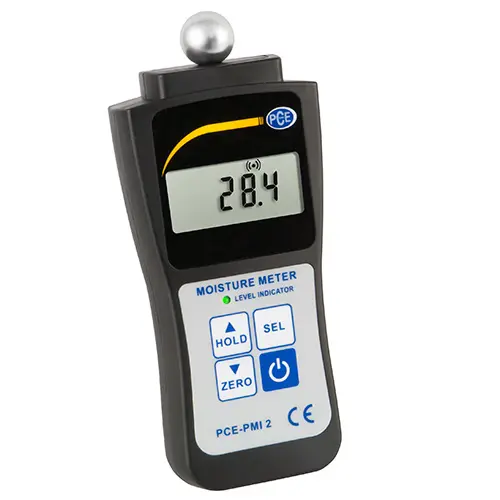How to Use a Moisture Meter to Spot Covert Water Damage in Your Residential property
The Ultimate Guide to Dampness Meters: A Comprehensive Summary and How They Can Conserve You Cash
In the world of structure upkeep, building, and various markets, the relevance of accurately gauging moisture levels can not be overemphasized. Wetness meters work as important tools in discovering and keeping track of moisture material in products, aiding in protecting against costly problems and ensuring the top quality of items. Recognizing the subtleties of various kinds of moisture meters, their applications, and the potential cost-saving benefits they provide can be a game-changer for organizations and specialists alike. Uncovering exactly how these tools can not only enhance processes however also add to economic cost savings is a journey worth starting.
Kinds of Dampness Meters
Numerous kinds of wetness meters are offered for various applications in various sectors. One typical kind is the pin-type wetness meter, which determines the electric resistance in between two pins placed right into a material. This type is ideal for wood, drywall, and other building products. Pinless dampness meters, on the other hand, use electro-magnetic sensor plates to check a bigger area without causing damages to the product's surface area. Moisture Meter. These meters are ideal for quickly evaluating dampness degrees in big areas such as floorings and wall surfaces.

Infrared dampness meters determine the thermal buildings of a product to determine its wetness content non-invasively, making them valuable for applications where pin or pinless meters may not be appropriate. Understanding the various types of dampness meters readily available can help industries pick the most ideal tool for their details wetness dimension needs.

Advantages of Utilizing Moisture Meters
Dampness meters use vital benefits in precisely analyzing and monitoring wetness degrees in diverse materials and atmospheres. One of the key advantages of making use of dampness meters is the avoidance of prospective damage triggered by excess dampness.
Additionally, using wetness meters can lead to raised power efficiency. In agricultural setups, moisture meters play a crucial duty in maximizing plant returns by allowing farmers to keep track of dirt moisture degrees and make informed irrigation decisions.
How to Choose the Right Dampness Meter
Selecting the ideal wetness meter involves taking into consideration crucial factors such as product compatibility, measurement variety, and calibration precision. When selecting a moisture meter, it's necessary to ensure that the meter is ideal for the particular material you will be screening. Different materials have differing electric homes that can impact dampness readings, so picking a meter created for your product is important for precise outcomes. In addition, take into consideration the measurement variety of the moisture meter. Ensure that the meter can spot dampness levels within the range required for your applications. Calibration precision is an additional crucial aspect to keep in mind. Choose a wetness meter with trustworthy calibration to make sure specific and regular analyses. Some meters may need regular calibration modifications, so recognizing the calibration process is essential. By thoroughly examining these factors, you can select a moisture meter that fulfills your demands and gives exact wetness measurements for your jobs.
Proper Techniques for Dampness Meter Usage

Expense Financial Savings With Moisture Meter Applications
How can the critical utilization of wetness meters lead to significant expense savings across numerous markets? In the farming industry, wetness meters aid in establishing the optimal time for gathering crops, preventing over-drying or excess moisture that can influence the final item's quality.
Similarly, in building, moisture meters assist avoid expensive damages by discovering moisture levels in building visit materials, such as wood or concrete, which can cause structural issues if not addressed immediately. By recognizing problem locations at an early stage, service providers can take rehabilitative actions to stay clear of extensive repairs or substitutes, inevitably saving time and money.
Moreover, in the food processing sector, wetness meters are important for monitoring product quality and guaranteeing compliance with safety and security guidelines. By precisely measuring wetness web content in food, manufacturers can avoid putridity, maintain quality, and lower waste, resulting in considerable price savings. In general, the strategic application of moisture meters is a useful investment that can lead to substantial cost decreases and improved effectiveness throughout different industries.
Final Thought
To conclude, wetness meters are valuable devices for spotting and gauging wetness levels in numerous products. By making use of the appropriate wetness meter and complying with proper methods, users can successfully protect against costly problems triggered by excess dampness. Buying a top quality wetness meter can result in considerable price financial savings over time by determining potential concerns beforehand and enabling timely removal. Eventually, wetness meters are necessary instruments for preserving the honesty and long life of products and frameworks.
Moisture meters serve as indispensable tools in identifying and keeping track of moisture web content in materials, assisting in protecting against expensive damages and making sure the top quality of items. Infrared dampness meters measure the thermal residential properties of a material to establish its moisture content non-invasively, making them hop over to these guys valuable for applications where pin or pinless meters might not be suitable.Moisture meters offer important benefits in accurately keeping track of and assessing wetness degrees in varied products and environments. In farming setups, wetness meters play a vital role in enhancing crop yields by allowing farmers to keep track of dirt wetness levels and make informed irrigation decisions.In final thought, wetness meters are important devices for gauging and identifying moisture degrees in various products.